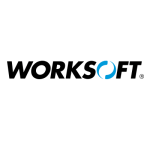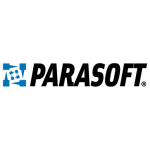TestComplete is simple, it's a very easy-to-use tool. It offers credibility and value for the money. A basic license is roughly $4,000 and you can add flexible components on top of it.
If you want desktop testing, you can add-on a desktop license. If you want web testing, you're going to want to add-on a web license — there's a lot of flexibility, you just need to pay for what you use. There are no irritating subscription models.
People are able to quickly use the platform and with a variety of scripting languages, including Python and JavaScript — all the modern scripting languages are supported. It doesn't just rely on VB script like UFT.
It's very flexible and robust in that way. I have seen many of our clients quickly adopting the tool with all the scripting languages.
Recently, they've been building a lot of futuristic features, for example, AI Self-healing is one of the interesting features where they try to improve and cut down on maintenance by automatically correcting the arbiter. That's a really cool feature for keeping your object repositories up to date, and it can considerably bring down or control your maintenance costs to some extent, at least as far as the object repository goes.
They also have some intelligent OCR features. They have a mini device cloud, for example, which allows you to run a testing tool and recently started supporting X spot. That actually goes well with selenium. You can reuse some of the scripts with other frameworks. They also acquired CucumberStudio a few years back. They have combined HipTest and Cucumber into one capability — CucumberStudio —, which is a great integration to TestComplete, that really becomes very seamless.
They're working on many features. Of course, the roadmap is not news to me, but yes, of course, they are working on different features.
I have been using this solution for many years.
We have not faced any concerns with respect to the stability of the tool; at least we have not seen any major issues with the tool where it malfunctions or anything, never.
It is a scalable solution. The beauty of TestComplete is that it's not tied to one scripting language. All the different scripting languages come with different abilities. You have different types of metrics and controls available with different scripting languages. That way we can drive our own framework. You can create many custom frameworks using TestComplete that will suit your organization. That's what we have been doing with many companies — it's an all-in-one solution.
The technical support is excellent. We don't deal with them directly, but the feedback that I have received from different clients is that it's really excellent. They are always attentive — That's a feeling I've always got from different clients.
The initial setup is pretty straightforward. There's a good license server map for all those things — it's a fairly straightforward solution.
The licensing costs are in the range of $1,000 to $3,000.
We do a lot of consulting and training services for SmartBear. We try to educate the users in terms of the new features available in TestComplete so that they can do some smart automation. It's not just for automating some scenarios, you can optimize a lot of your effort.
On a scale from one to ten, I would give this solution a rating of nine.

















Your review is well-written. Will TestComplete run on a locked computer?